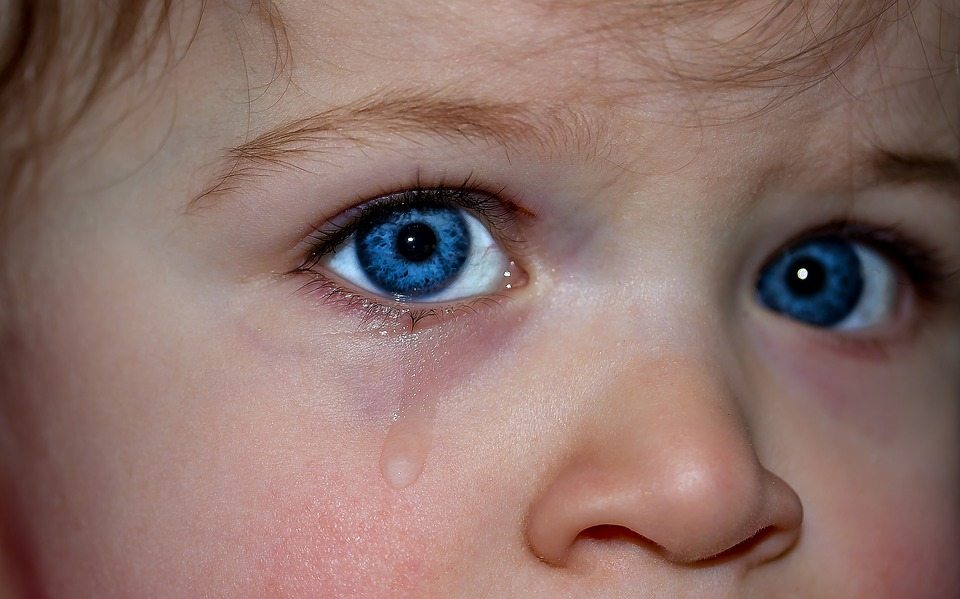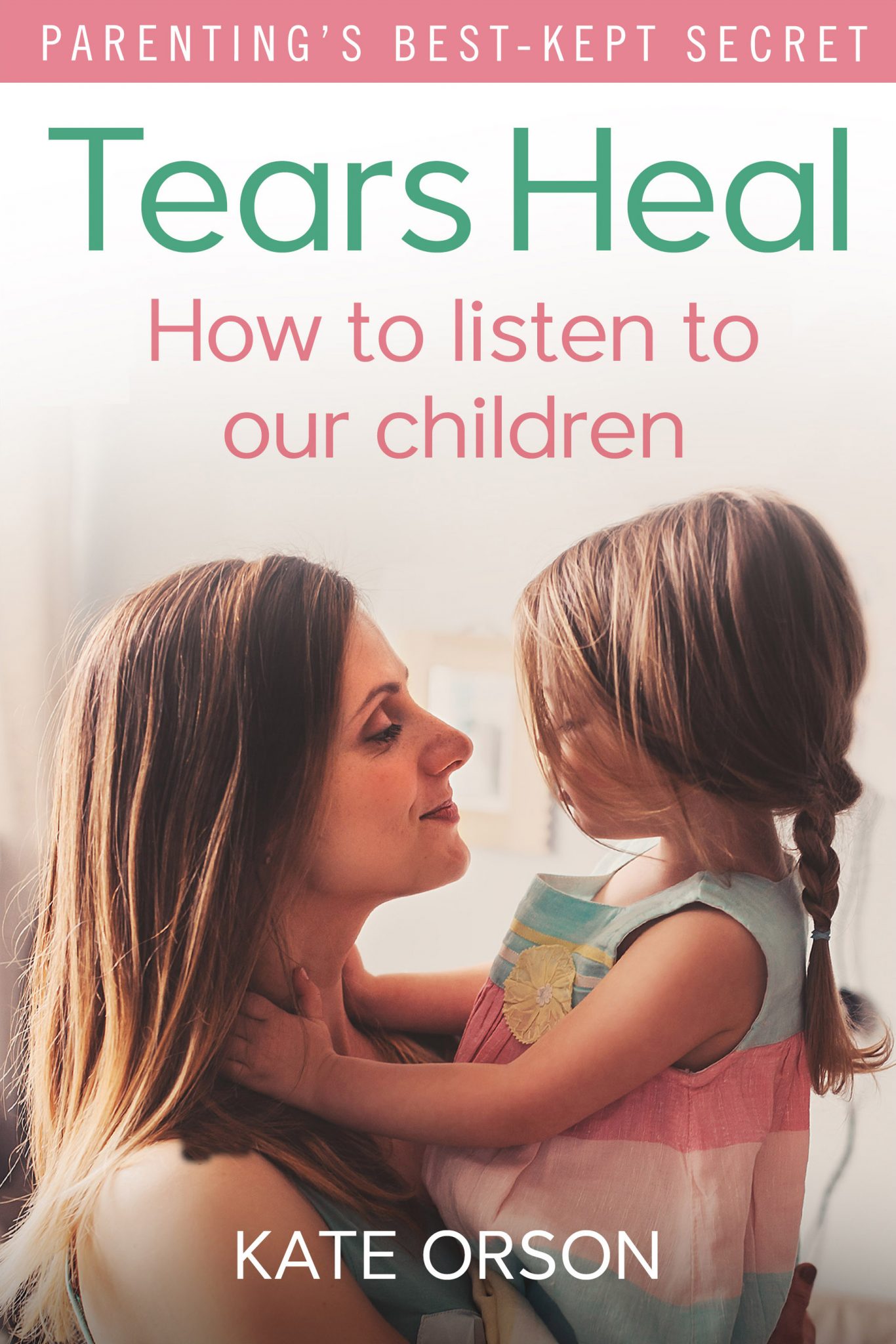
It’s OK to cry. Letting children express their emotions helps them become better adjusted adults.
By Kate Orson, Special to JenniferMargulis.net
We all know the feeling of a good cry. Shakespeare said, ‘to weep is to make less the depth of grief,’ and a scientific review published in the journal Frontiers in Psychology in 2014 found that crying enhances our mood, particularly when we have someone there to offer us social support.
Yet when our babies or children cry, most parents don’t think of it as something, ‘good.’
We do everything in our power to just stop the crying. With babies we’ll bounce them or ‘shhh’ them. With toddlers we’ll try to distract them with a nice toy, encourage them to ‘use your words,’ or simply ignore the crying until it stops.
As adults, we also try to distract ourselves from our emotions. Maybe you scroll through your Facebook newsfeed, make another cup of coffee, reach for chocolate or a glass of wine. Why do we find it so hard just to simply be with our own and our children’s feelings?
In my teens and early twenties, when I felt low I’d go out drinking or take drugs. Happiness was easy to reach simply by changing my brain chemistry and finding friends to have fun with.
But when I was 21 I was diagnosed with chronic fatigue syndrome. I could no longer rush around being busy all the time, going out every night, ignoring my moments of sadness and covering them up with alcohol or drugs.
I was left with stillness.
I was alone much of the time, and had no choice but to actually face my emotions. This wasn’t easy. I found yoga, meditation, and creative writing helped me cope.
I never went back to my previous life of partying. Instead over the years, I went deeper into healing myself. I learned how to be with my emotions and to move through them, without trying to fix or change them.
I cried a lot.
And I found that when I let myself cry I came out the other side to a greater joy.
When I became pregnant in my early thirties, I discovered a book called The Aware Baby by Aletha Solter, Ph.D. A developmental psychologist who studied with Jean Piaget, Solter explains that crying is a built-in healing mechanism that babies are born with, and that they actually cry for two distinct reasons: 1) to get their needs met, and 2) to heal and recover from any stressful experiences they have. I suddenly realised what I’d been searching for all this time, was my own tears.
I’d been wary about becoming a parent. I remembered the poem by Phillip Larkin that goes, ‘they f**k you up, your mum and dad.’
 It seemed so hopeless—that we bring children into the world, and then fill them with hurt and emotional baggage.
It seemed so hopeless—that we bring children into the world, and then fill them with hurt and emotional baggage.
Then I realised that it didn’t have to be this way—I didn’t need to be a perfect parent. If my child experienced difficulties I could help her heal. She wouldn’t have to wait until she was an adult to set off on her own soul-searching journey. With my help, she could recover from stress and upset, and learn to be kind to and accepting of herself, while she was still a child.
I decided I would listen to my daughter, to stay with her and hold her, and just allow her to cry when she needed to cry. If she didn’t have a particular problem that I needed to fix, I could be there to accompany her in her sadness instead of trying to cajole her out of it. I started to understand how we all have these little we automatic ways in which we try to stop our babies and children from crying, without any conscious awareness of what we are doing. For example we ‘shhh’ a baby, or distract a toddler on the verge of tantrum. We have ingrained ways of avoiding emotions in ourselves, and in our children.
What happened when you cried as a baby or toddler? Were you shouted at or punished? Were you told ‘Don’t cry,’ or, ‘I’ll give you something to cry about?’ How our parents responded to our own tears and complicated emotions affects our behaviour as parents. It can be hard to deal with crying, when our own tears weren’t met with empathy and listening when we were young.
If you were not responded to in a way that helped you accept your emotions and yourself as a child, you do not have to parent your children the same way. Instead you can write down your childhood story, or tell it to a sympathetic listener. Research has found that the act of processing our past and making sense of it is the single most important factor that determines how securely attached our children are to us. As we tell the story of how our parents reacted to our tears and emotional upsets we will find our own children’s emotions easier to deal with.
One in four adults will have a mental health issue at some point in their lives. If there’s one thing you can do to inoculate your children against future sadness, it’s allowing them to express their emotions now. When our children cry we can simply be with them, offer hugs, and listen. We can give them a few kind, reassuring words, ‘’I’m here, you’re safe.’’ We don’t need to talk too much. We don’t need to try to get our child to ‘use their words.’ The best thing we have to offer our children is our loving presence.
 Kate Orson is a Hand in Hand Parenting instructor and author of Tears Heal: How to Listen to Our Children.Originally from the U.K., she now lives in Switzerland with her husband, author Toni Davidson, and their five-year-old daughter. Follow her on Facebook and Twitter. Visit her website, www.kateorson.com.
Kate Orson is a Hand in Hand Parenting instructor and author of Tears Heal: How to Listen to Our Children.Originally from the U.K., she now lives in Switzerland with her husband, author Toni Davidson, and their five-year-old daughter. Follow her on Facebook and Twitter. Visit her website, www.kateorson.com.
Leave a Reply